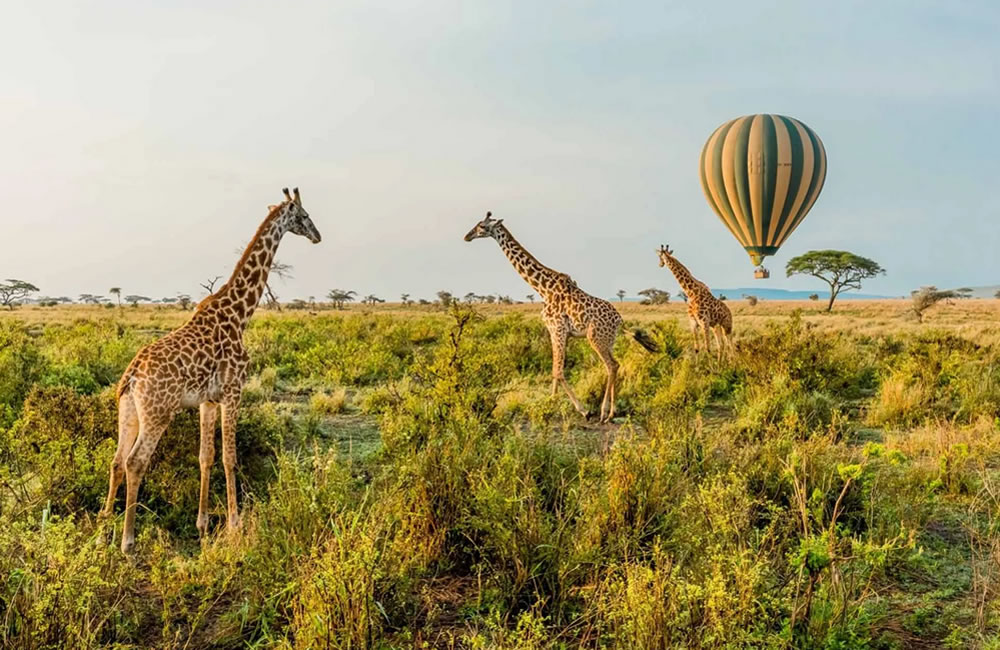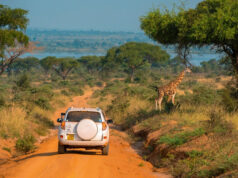An East African safari transcends a mere vacation; it represents a unique opportunity to engage with stunning landscapes, remarkable wildlife, and vibrant cultural experiences. Whether your aspirations include witnessing the Great Migration in the Serengeti, encountering mountain gorillas in Uganda, or savoring a sunset across the savannah, meticulous preparation is essential for a seamless and enjoyable adventure. A safari is distinct from other types of holidays, necessitating thoughtful planning to guarantee comfort, safety, and optimal wildlife interactions. This guide encompasses all the necessary information, from choosing the ideal destination to essential packing tips and insights into safari etiquette. For those embarking on their inaugural safari in East Africa, adhering to these recommendations will ensure a truly memorable experience.
Choose the Right Safari Destination
East Africa boasts some of the most renowned national parks and wildlife reserves globally. Each location provides a distinct experience, making it essential to select the one that aligns with your personal interests.
Best Safari Destinations in East Africa
Masai Mara National Reserve (Kenya): Renowned for the Great Migration, during which millions of wildebeest and zebras traverse the Mara River, this region is also inhabited by the Big Five—lion, elephant, buffalo, leopard, and rhinoceros—establishing it as one of the most sought-after safari locations.
Serengeti National Park (Tanzania): Renowned for its vast grasslands and a rich diversity of predators such as lions, cheetahs, and leopards, the Serengeti serves as the origin of the Great Migration, providing extraordinary wildlife experiences.
Bwindi Impenetrable National Park (Uganda): The premier destination for gorilla trekking in Africa offers visitors the opportunity to engage closely with endangered mountain gorillas in their natural environment.
Volcanoes National Park (Rwanda): This experience includes gorilla trekking, stunning mountain vistas, and the opportunity to traverse the very paths that renowned primatologist Dian Fossey once explored.
Queen Elizabeth National Park (Uganda): An exceptional combination of savannah fauna, lions that ascend trees, trekking with chimpanzees, and boat excursions along the Kazinga Channel.
Ngorongoro Crater (Tanzania): A remarkable natural phenomenon characterized by a variety of wildlife within a distinctive crater setting. This location is among the premier sites for observing a significant density of animals in a comparatively compact region.
Each park offers unique attractions; therefore, it is advisable to conduct thorough research and select one that aligns with your interests and expectations.
Pick the Best Time to Go
The timing of your safari significantly influences the overall experience. The optimal period for your visit is contingent upon your specific interests and what you wish to observe.
June to October (Dry Season): This period is regarded as the optimal time for observing wildlife, as animals congregate near water sources, thereby increasing their visibility. Additionally, it marks the peak season for safaris, attracting significant numbers of visitors to well-known parks.
November to May (Wet Season): The rainy season revitalizes the landscape, resulting in vibrant greenery that is perfect for bird watching. Additionally, the reduced number of tourists leads to lower costs and a more exclusive safari experience.
To experience the Great Migration, one should travel to Kenya’s Masai Mara between July and October, or to Tanzania’s Serengeti from December to June.
Get the Necessary Travel Documents
When planning a trip to East Africa, it is essential to possess the appropriate documentation.
Passport: It is essential that the document remains valid for a minimum of six months from the date of your travel.
Visa: A visa is necessary for entry into most East African nations. You have the option to apply online for an East African Tourist Visa, which permits travel across Kenya, Uganda, and Rwanda without any hassle.
Yellow Fever Certificate: Certain nations mandate the presentation of yellow fever vaccination documentation as a condition for entry.
Travel Insurance: This policy addresses medical emergencies, trip cancellations, and lost luggage, providing reassurance throughout your safari experience.
Get Vaccinations and Health Precautions
Prior to embarking on your journey, it is advisable to consult a travel clinic or healthcare professional for vaccinations and health recommendations.
Recommended Vaccinations: Yellow fever, hepatitis A & B, typhoid, rabies, and meningitis.
Malaria Prevention: East Africa contains regions that are susceptible to malaria. It is advisable to carry anti-malarial medication, apply insect repellent, don long-sleeved attire during the evening, and utilize mosquito nets while sleeping.
First Aid Kit: It is important to pack necessary medications, analgesics, antiseptic wipes, and any personal prescriptions.
Plan Your Safari Budget
Safaris can incur significant costs; however, there are strategies to reduce expenses. Your financial plan will be influenced by elements such as lodging, transportation, and activities.
Luxury Safari: Experiencing luxurious accommodations and exclusive game drives tailored to individual preferences.
Mid-Range Safari: Lodges that provide comfort along with shared game drives, striking a harmonious balance between luxury and affordability.
Budget Safari: Camping and group safaris, providing an adventurous and affordable way to experience the wild.
To save money, book your safari in advance, consider group tours, and travel during the off-peak season.
Pack the Right Safari Gear
Selecting the appropriate items will ensure that your safari experience is both comfortable and enjoyable. Below is a checklist:
Clothing
- Attire in neutral shades such as khaki, brown, and green is recommended to harmonize with the natural environment and minimize the attraction of insects.
- Long-sleeved shirts and trousers are essential for safeguarding against sun exposure and insect bites.
- A warm jacket is advisable for early morning and evening excursions.
- Comfortable walking shoes or boots are necessary for bushwalks and nature trails.
- A wide-brimmed hat and sunglasses are important for protection against the sun.
Essentials
- A premium camera accompanied by additional batteries and memory cards to document remarkable wildlife encounters.
- Binoculars for observing animals from afar.
- Sunscreen, insect repellent, and lip balm to safeguard your skin.
- A refillable water bottle to maintain hydration.
- A compact backpack to transport necessities during game drives.
Understand Safari Etiquette
- Respecting wildlife and other participants in the safari contributes to an enjoyable experience for all.
- Do not make loud noises: It disturbs animals and other tourists.
- Stay inside the safari vehicle: For your safety and to avoid scaring animals.
- Do not litter: Help keep the parks clean and protect the environment.
- Follow your guide’s instructions: They know the safest ways to enjoy the safari.
- Respect local cultures: Ask before taking pictures of people, and dress modestly when visiting villages.
Stay Safe During Your Safari
- Safety must always be of utmost importance during a safari experience.
- It is essential to heed the instructions of your guide at all times.
- Refrain from getting too close to wild animals, regardless of their apparent tranquility.
- Steer clear of walking alone at night within safari camps.
- Ensure that your valuables are kept secure within the lodges.
Conclusion
An East African safari represents a remarkable adventure, providing extraordinary wildlife experiences and lasting memories. However, adequate preparation is crucial for ensuring a safe and enjoyable journey. By selecting the appropriate destination, packing wisely, obtaining necessary documentation, and adhering to safari etiquette, you can maximize your experience.
Whether you are observing the Great wildebeest migration, trekking with gorillas in the mountains, or traversing expansive savannahs, East Africa offers a unique journey. Invest time in thorough planning, embrace the adventure, and prepare for an experience that will remain with you indefinitely. Your inaugural safari marks the beginning of a profound appreciation for Africa’s untamed beauty.





